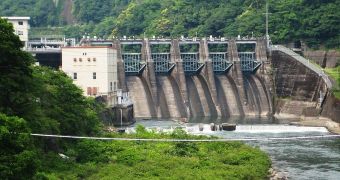The UN Development Programme launched its annual Human Development Report, which reflects the organization's efforts of making electricity accessible in every part of the globe, in times when almost 1.5 billion people lack electrical power in their households.
UN secretary general Ban Ki-moon was excited to announce the birth of a group that will supervise the development of renewable sources of energy and the expansion of sources of power towards areas which are still vulnerable from this point of view.
The report takes into consideration two major challenges for our modern society: the negative impact of industrial technologies upon the environment and the consequences implied by this particular phenomenon upon Earth's population.
Human Development Report was elaborated based on the numbers provided by the UNDP's human development index, that takes into consideration criteria such as income, health and the level of education.
According to this information, it seems that Norway, Australia and the Netherlands occupy the first positions in the 2011 ranking, while Niger, Congo and Burundi have been considered the less developed countries.
Out of all the countries mentioned in the UNDP's human development index, Cuba has the most impressive evolution.
The report also highlights the importance of women, as activists in environmental preservation campaigns.
Once their contribution is acknowledged and rewarded, the global population will obtain a more successful way of responding to the present challenges.
The annual Human Development Report also reflects the realistic correlation between environmental conservation and decreased birth rates.
Mother Nature can spread its resources in a more effective manner while dealing with less individuals.
Furthermore, less people imply a lower amount of CO2 emissions, and it seems that if we follow the same path we would be able to decrease our carbon footprint by 17% until 2050.
"Transformation in gender roles and empowerment have enabled some countries and groups to improve sustainability and equity, advancing human development. Evidence suggests that if all women could exercise reproductive choice, population growth would slow enough to bring greenhouse gas emissions below current levels," reveals the report.
According to the opinion of officials who elaborated the Human Development Report, if women assume a more active position in our society, such a strategy would generate less environmental degradation, a wider access to water and energy and a more successful fight with air, water and soil pollution.

 14 DAY TRIAL //
14 DAY TRIAL //